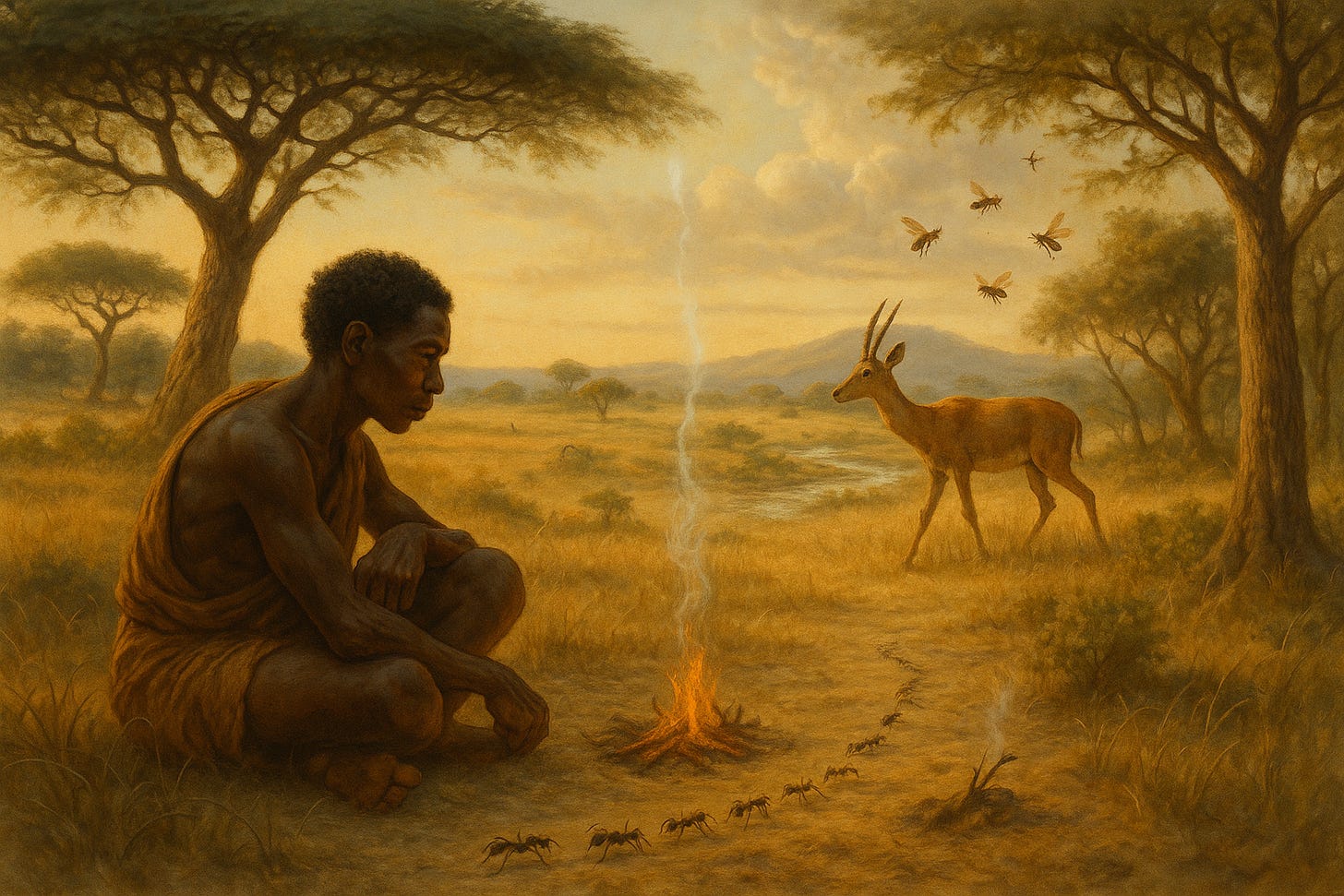Lessons in Innovation from the Small and Wild
We tend to look for innovation in labs and launchpads. But out here, in the open quiet of the savannah, it hums softly between roots and rhythms.
The antelope knows when to leave the grasslands—long before the grass grows scarce. The Bushman never hunts more than needed, because the land is not a warehouse, and meat is not currency. Rain doesn’t arrive by design, but its timing is part of a deeper clock we once knew how to read. Agriculture? That was never about feeding empires. It was simply a bridge between the generosity of seasons. And the rivers—cool, untouched, drinkable—flowed not because someone managed them, but because no one thought to break them.
This wasn’t luck. It was design. Not drawn up in plans, but lived through practice.
What if we’ve misunderstood innovation? What if it isn’t about building something new, but remembering what already works? Like the ants that manage whole cities underground, or the bees that agree on home through consensus. Maybe the blueprint isn’t in the future. Maybe it’s been under our feet the whole time.
Because the savannah doesn’t think in straight lines. It thinks in echoes, in migrations, in stories passed from tree to trail. It doesn't mine the past—it cultivates it. It doesn't stockpile—it synchronizes. It remembers not in data tables, but in footsteps and firelight.
Maybe the wisdom we need now isn’t buried in some vault of modernity. Maybe it’s still sitting under the palaver tree, waiting. Maybe oral tradition is just another kind of algorithm—nonlinear, yes, but infinitely adaptive. People cling to old notebooks, even when the pages are yellow and the context has changed. Oral knowledge doesn’t suffer that rigidity. It evolves as it’s told. It edits itself in real time. It listens as much as it speaks. Where the written word risks becoming fossil, the spoken word flows—always current, always alive.
Maybe what we called “primitive” was just a different kind of smart.
And maybe that’s the point.
So if the vastness overwhelms you, zoom in. Watch the ant. Listen to the rain before it falls. Learn from the things that don’t shout.
The savannah thinks, question is: can we learn to listen again?


